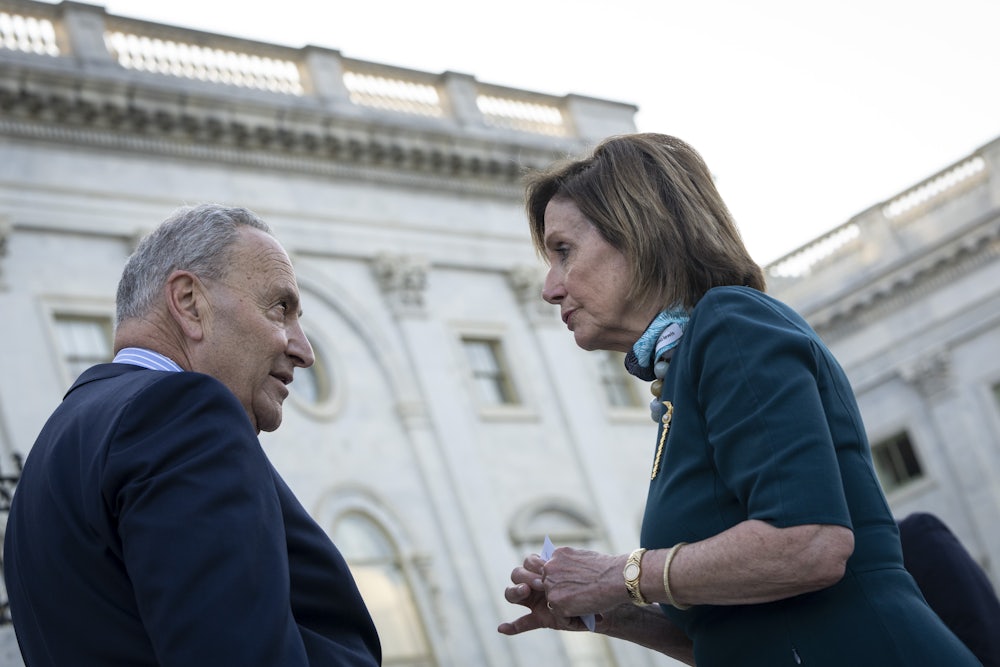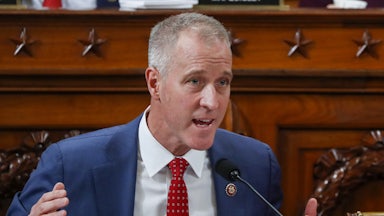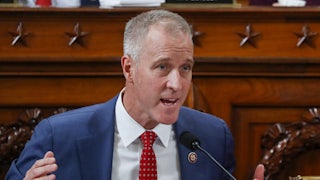Last week’s Supreme Court ruling to end the federal moratorium on evictions was perhaps a canary in the coal mine for what would transpire a week later, with the high court’s decision not to prevent Texas’s treacherous new anti-abortion law from going into effect. The court’s conservative majority’s move to curtail the moratorium, a cornerstone of the pandemic relief effort, once again dispensed a status quo–altering ruling off their so-called “shadow docket,” over the dissent of the liberal trio. The end of the federal eviction moratorium will precipitate a crisis that threatens to displace 3.5 million households.
The Roberts court’s choice to let Texas’s abortion law go into effect underscores the indecencies of a right-wing judiciary. But it bears mention that the end of the eviction moratorium is not really the Supreme Court’s fault. The blame for that falls squarely on the Democratic-controlled Congress. Amid a litany of crises, the Supreme Court’s recent action (and inaction) provides a timely gut check on the Democrats’ overall governing and reelection strategy.
It’s actually remarkable that the moratorium stood for as long as it did. As The New Republic’s Matt Ford explained last month, the authority that the Centers for Disease Control and Prevention cited as the basis of the moratorium was flimsy at best, relying on an extremely generous reading of a single clause in the Public Health Service Act of 1944. That it managed to coax an initially empathetic ruling from the conservative Supreme Court, albeit temporarily, is a minor miracle.
At the time, Justice Brett Kavanaugh made it clear that the moratorium was not long for this world: “If a federally imposed eviction moratorium is to continue,” Kavanaugh wrote, “Congress must specifically authorize it.” Last week’s shadow docket decision reaffirmed this: “If a federally imposed eviction moratorium is to continue, Congress must specifically authorize it,” it read.
Despite such clear guidance for the action Congress needed to take, the White House responded to the Covid housing crisis by pointing toward figures far from Capitol Hill as the solution to the problem. On August 26, White House press secretary Jen Psaki ran down a wide-ranging list of people who needed to step up and help. Members of Congress were conspicuously absent from the request: “President Biden is once again calling on all entities that can prevent evictions—from cities and states to local courts, landlords, Cabinet agencies—to urgently act to prevent evictions.”
A few days later, Psaki returned to the lectern to declare, “Attorney General Merrick Garland is calling on the entire legal community to take immediate action to help prevent unnecessary evictions during this public health emergency.” This vague and nonsensical call to the entire legal community (whatever that means) came before the White House called on any legislators to do anything to stop people from losing their homes unnecessarily. (The White House did not explain what makes an eviction “necessary” or “unnecessary.”)
It’s all a rather farcical way of coming to grips with reality: Between the Democrats who are bankrolled by the National Association of Realtors and those who favor maintaining the filibuster over passing an agenda, there’s not enough Democratic support to save vulnerable Americans from losing their homes. Had Democrats been more willing to put their control of Congress to better use, they could have actually helped out their constituents in this time of crisis, rather than doing nothing.
The Democrats’ midterm strategy is, thus far, baffling. The party wants to brag about a legislative agenda that’s mostly blocked by the Senate filibuster. They need their voters to “out-organize” a titanically well-funded Republican movement to suppress the vote, all while fighting for their reproductive rights and/or being pushed out of their homes.
There’s a winning message to be had, nevertheless. Democrats can boast a strong platform of popular policies that might ameliorate some of America’s biggest problems, and can make a riveting case that the Republican Party is as cruel, illiberal, and irresponsible as ever. But these midterm arguments are undercut by the Democrats’ refusal to act on them—to use the power they have in the little time left to make the case that they should continue to hold power.
This week, as Texas’s draconian new abortion law went into effect across the Lone Star State, Senate Majority Leader Chuck Schumer vowed on Twitter, “This fight is only just beginning.” That every “fight” is perpetually on the verge of getting started without Democrats ever entering the ring is precisely the problem.
This article first appeared in Power Mad, a weekly TNR newsletter authored by deputy editor Jason Linkins. Sign up here.








